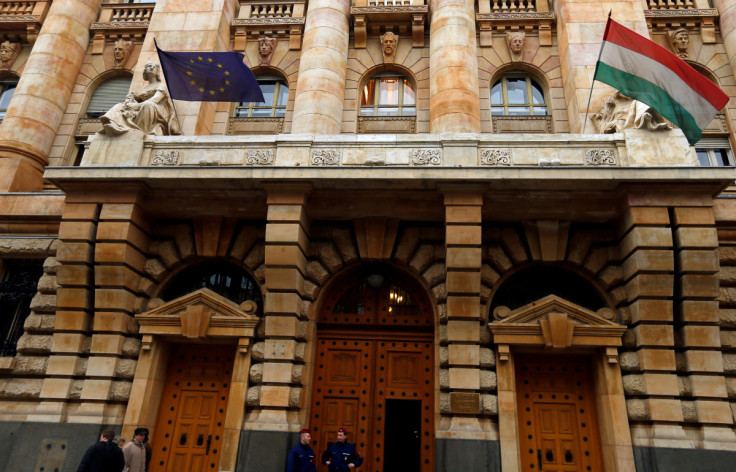Hungary Ends Massive Rate Hikes With One Last 125 Bps Step

The National Bank of Hungary raised its base rate by a larger-than-expected 125 basis points to 13% on Tuesday and ended its more than year-long rate hike cycle amid a slowing economy.
Central European policymakers are seeking to end a strategy of interest rate rises running since last year even as inflationary pressures remain and the world's major central banks keep pursuing higher rates.
The NBH has raised its base rate by more than 1,200 bps since June 2021 to the highest level in Central Europe to curb double-digit inflation which is still on the rise.
"... Interest rate conditions have become sufficiently strict, which ensures the achievement of the inflation target. The Monetary Council has decided to stop the cycle of base rate hikes," the bank said in a statement.
The bank said tight monetary conditions would be maintained "over a prolonged period" to ensure that inflation expectations are anchored. While ending its rate hikes, the bank raised its inflation forecasts for this year and next. Average inflation next year is projected at 11.5%-14.0%.
"Looking ahead, tightening liquidity and further enhancing monetary transmission will be in the NBH's focus, for which the central bank may decide on additional measures in the future," the bank added.
The NBH announced a set of measures in August which are expected to tighten forint liquidity from October. These include raising the required reserve ratio for banks.
RISKY MOVE?
The decision to call an end to rate hikes had been on the cards after deputy Governor Barnabas Virag said last week that the NBH could consider ending its rate rise cycle after Tuesday's meeting.
The central bank's move is not without risks as markets are turning against riskier emerging market assets as the U.S. Federal Reserve aggressively hikes rates - boosting the dollar. Hungary's widening current account deficit on its surging energy imports makes it vulnerable to shifts in global sentiment.
By 1328 GMT, the forint, central Europe's worst-performing unit with a 9% loss versus the euro this year alone, firmed to 404.50 per euro from 407.85 just before the rate increase.
"The continued widening of the current account deficit in Q2 alongside growing concerns about the global economy mean the risks remain very much skewed to a weaker (forint) currency," analysts at Capital Economics said in a note on Tuesday.
Governor Gyorgy Matolcsy told a briefing that inflation would start decreasing slowly in the first half of 2023.
Economists polled by Reuters last week still forecast the base rate rising to 14% by the end of this year.
© Copyright Thomson Reuters 2024. All rights reserved.




















